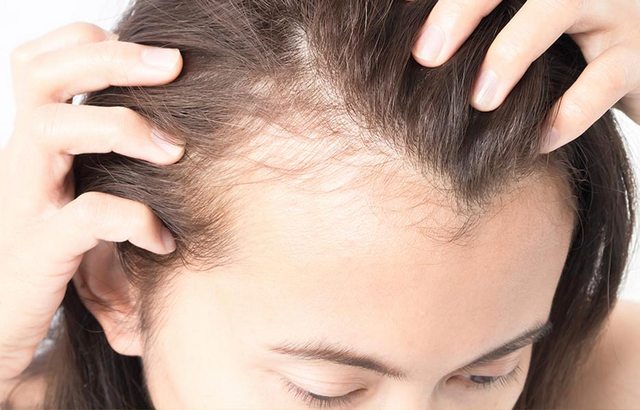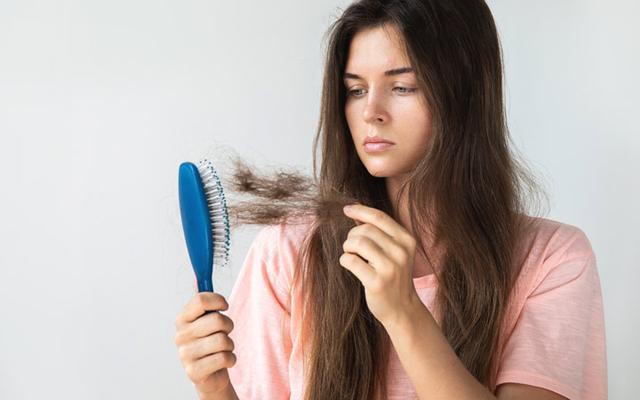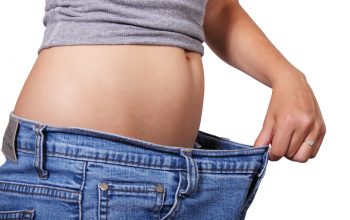Pregnancy causes many biological changes, and many women may be concerned about hair loss. Although hair loss during pregnancy is quite rare, the months after giving birth is a period when women are more likely to experience hair thinning and hair loss.
During pregnancy, your hair should become thicker, thicker and shinier, but for some women this has the opposite effect: hair becomes drier and thinner. Since pregnancy can affect your hair, here’s our guide on why and how it happens, and what you can do if you’re experiencing pregnancy-related baldness.
Why does hair change during pregnancy?
You may feel like your hair is growing better than ever during your pregnancy. It can be thicker and shinier, but it can also be boldier, although the added moisture can be a godsend if you tend to have drier curls.
The reason for this is (you guessed it) hormones. Hormones are the main cause of many bodily changes during pregnancy, and increased estrogen levels are responsible for the changes in your hair. Although your hair may appear thicker, individual hair strands are no thicker than they were, it is just that the hair has been in the growth phase (anagen phase) longer than usual, which means less hair is falling out.
Hair goes through a natural cycle of hair growth, including growth, rest, and hair loss. It is normal to fall out up to 100 hairs a day, which goes unnoticed, but with additional production of estrogen, the growth phase lengthens, and the amount of hair falling out per day becomes less than normal. During pregnancy, you have more hair on your scalp, so it may appear thicker and thicker.
However, in a small percentage of women, pregnancy can cause dull, thin and brittle hair.
Why do some women lose hair during pregnancy?
Pregnancy can be stressful for the body, and a sudden change in hormone levels in some women can disrupt the hair growth cycle, resulting in more strands of hair loss, not less. The shock or stress associated with pregnancy can cause hair to enter the telogen phase (resting phase) too early, which means you can lose up to 400 hairs a day, rather than the usual 50-100 hairs a day. Hair loss caused by heavy strain on the body is a condition known as telogen leakage. This will not happen immediately after pregnancy, it may take several months before you see that your hair has become thinner.
Aside from hormones, there are many other reasons why you may experience hair loss during pregnancy. Lack of nutrients in your diet to support you and your developing baby can cause vitamin deficiencies. Lack of vitamin D and iron is common during pregnancy and is the cause of hair loss.
You’re more at risk for iron deficiency anemia if you’re pregnant, so it’s important to get your levels checked to make sure they’re in the normal, healthy range. Feeling tired and weak, as well as headaches, chest pains, shortness of breath, and brittle nails are other common signs of iron deficiency. If you are experiencing hair loss or any other symptoms, talk to your doctor about having a blood test to check your iron levels. Taking the supplements will bring your levels back to normal and you will see an improvement in your symptoms.
Getting sick during pregnancy or taking certain medications can cause hair loss. If you have gestational diabetes (high blood sugar during pregnancy), this may be the reason for your thinning hair during pregnancy. Diabetes damages blood vessels throughout the body, even those that carry oxygen to the hair follicles, and without vital oxygen, your hair follicles can be damaged and the hair growth cycle disrupted.
Morning sickness is a very common illness in early pregnancy, but if you are unfortunate enough to have severe morning sickness, you are likely to lose a lot of nutrients. This, along with the stress of morning sickness on your body, can easily disrupt your hair growth cycle and lead to hair loss.

Hair loss after pregnancy
Postpartum hair loss or postpartum alopecia is much more common than hair loss during pregnancy. In the months after giving birth, it may seem like you are losing a lot of hair, although in reality you are losing as much as before pregnancy. When your hair growth cycle returns to normal, when estrogen levels drop after childbirth, the amount of hair loss may appear too much compared to the amount lost in 9 months of pregnancy.
The hair growth cycle compensates for the lack of hair loss during pregnancy through faster hair loss after birth. You shed very little hair during pregnancy, so it might come as a surprise when your hair recovers afterwards.
It is normal to experience hair loss after birth, it is a natural process that can last for a while. However, if it gets more severe and you are still losing a lot of hair one year after your baby arrived, it may be worth talking to your healthcare provider to find out if there are other reasons why your hair growth cycle has been disrupted due to this. a long. This can happen due to the medications you are taking or due to any disease or condition.
How can you stop or slow down postpartum hair loss?
It’s important not to get stressed or panicked about tufts of hair that fall out when brushing, this is very normal and stress can only make the situation worse. If this causes you anxiety and you feel your hair is thinning, there are methods you can try to prevent further hair loss and stimulate hair growth.
Treatment for postpartum hair loss will depend on whether you are breastfeeding or not. There are some natural home remedies that are safe for breastfeeding, as well as products that are very effective in treating hair loss but may not be suitable for breastfeeding mothers.
1. Eat a Balanced Diet
Food nourishes every part of the body, including your hair. Make sure you have a diet rich in protein and iron, this includes eating foods like fish, red meat, nuts, spinach, etc.
2. Try supplements
Food is not always enough to provide us with the necessary amount of nutrients for hair growth. Adding iron and vitamin D supplements or multivitamins to your diet is a good way to ensure that you are getting the nutrients that you are lacking in your diet.
3. Take care of your scalp
Maintaining a healthy scalp is very important for hair growth. If you have any scalp problems such as dryness, itching, or psoriasis, be sure to treat them as scratches can break and pull out your hair. A scalp massage also stimulates blood circulation in the hair follicles and is great for relaxation!
4. Avoid heated styling tools and wear soft hair
If your hair is thinning, the last thing you need to do is apply direct heat to it, or damage it further with harsh combs or hairstyles that are too harsh, which can break your hair. Be gentle with your hair.
5. Reduce stress
Reducing stress is easier said than done when you have a baby and hair loss, but preventing further hair loss is so important. Anything that helps you relax, do it regularly, as it will help regulate your hormones and your hair growth cycle.
These methods can help prevent further hair loss and stimulate hair growth, and are great if you are breastfeeding. Check with your healthcare provider if supplements are right for you and your nursing baby.
Try Regaine for Women
Other treatments for hair loss may not be suitable for women who are breastfeeding, but they are very effective in treating hair loss. Regaine for Women is one of these products. This product is medicinal and contains the ingredient minoxidil, which stimulates hair growth by increasing blood supply and nutrients to hair follicles.
Regaine for women is a lather that is applied to dry scalp once or twice a day, depending on the dose. The foam should be rubbed into the scalp and does not need to be rinsed off as the solution dries onto the scalp.
Some women suffering from hair loss have noticed noticeable results within 3 months after using Regaine for Women, however, it is not suitable for all types of hair loss. This product is intended for the treatment of androgenetic alopecia, which is a type of hair loss and is usually genetic in nature. If you are not breastfeeding and are worried about thinning hair, it may be worth asking your doctor if Regaine can work for you.




